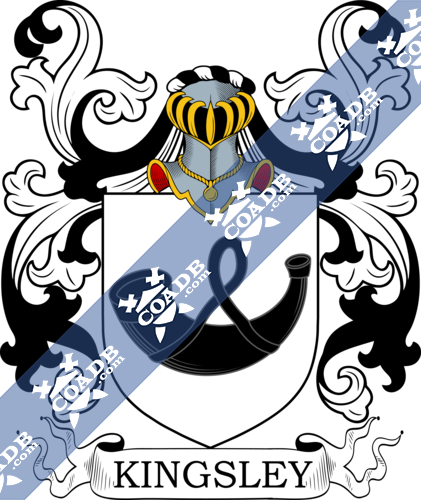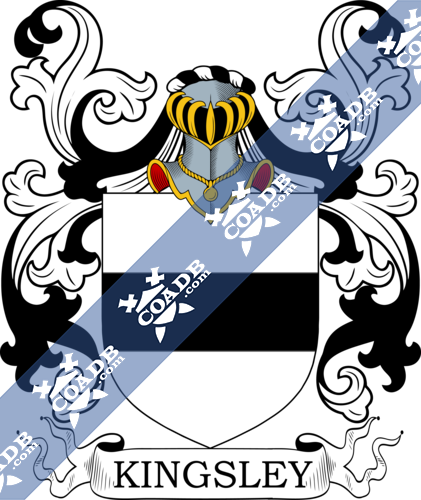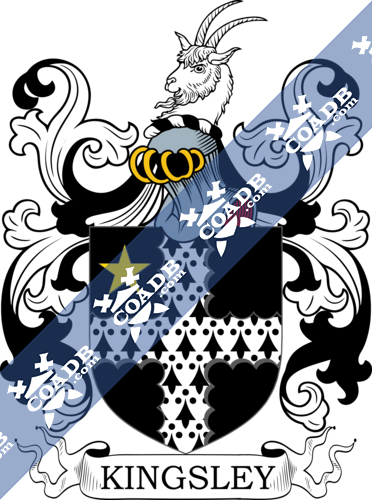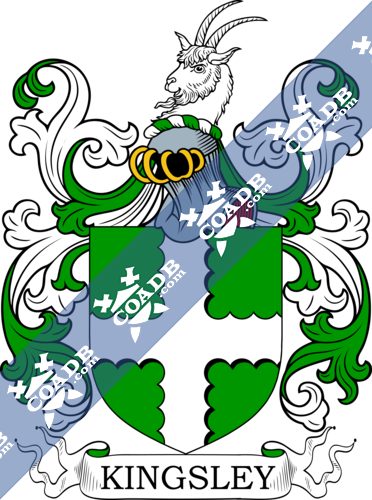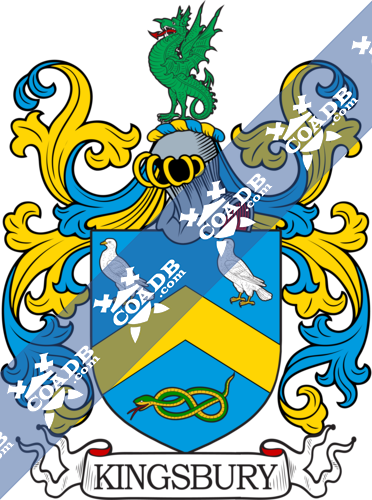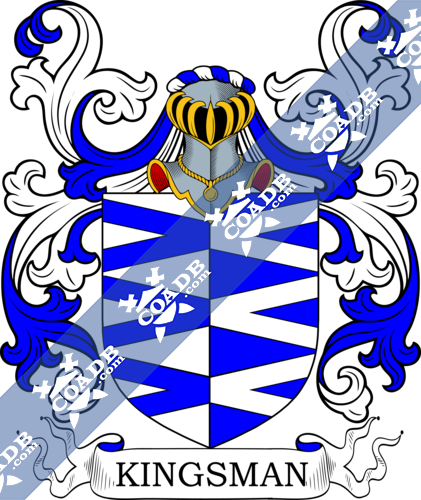Kingsley Family Crest, Coat of Arms and Name History
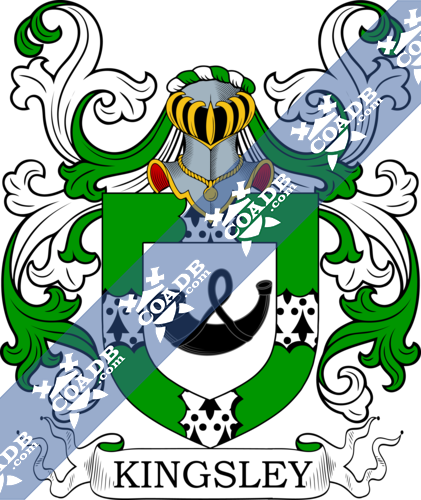
Kingsley Coat of Arms Gallery
Don’t know which Coat of Arms is yours?
We can do a genealogical research. Find out the exact history of your family!
Learn MoreOrigins of Kingsley:
This interesting name is of Anglo-Saxon origin and is a locational surname acquiring from any one of the places called ‘Kingsley’ in Cheshire, Hampshire and Staffordshire. The places in Cheshire and Staffordshire noted as ‘Chingeslie’ in the Domesday Book of 1086 and that in Hampshire as ‘Kyngesly’ in 1210. The place names all share the same meaning and origin, which is ‘the glade, clearing, of the king’, or ‘chieftain’, acquired from the Old English pre 7th Century ‘cyning’, King, originally chieftain, tribal leader, with ‘leah’, thin wood, glade, clearing. Locational surnames usually acquired by those old residents of a place who moved to another area and were best recognised by the name of their birthplace. Charles Kingsley (1819-1875), the English clergyman and writer of ‘Westward Hol’, and ‘The Water Babies’ is probably the best-known holder of the name.
Variations:
More common variations are: Kiingsley, Kaingsley, Kingsleey, Kingsly, Kingsle, Kingwesley, Kingsale, Kingsely, Kingslee.
England:
The surname Kingsley first appeared in Cheshire where a “township and estate, the property of Sir Ranulph de Kingsley before 1128 appeared. In the XVIII century, the family divided into two branches, the younger continuing the name of Kingsley, the elder adopting that of De Aula or Hale.” Another early listing of the name was Adam de Kyngeslegh who noted in East Cheshire. Kingsley is a township, civil church and a village in the parish of Frodsham, union of Runcorn. It first noted in the Domesday Book of 1086 as Chingeslie.
The very first recording spelling of the family was shown to be that of William de Kingesle, dated 1246, in the Lancashire Assize Rolls. It was during the reign of King Henry 111, who was known as “The Frenchman”, dated 1216-1272. Surname all over the country became a necessity with the introduction of personal taxation. It came to be known as Poll Tax in England. Surnames all over the country began to develop with unique and shocking spelling varieties of the original one.
United States of America:
Some of the people with the name Kingsley who arrived in the United States in the 17th century included William Kingsley settled in Virginia in 1623. William Kingsley, who arrived in Virginia in 1623. Steven Kingsley, who settled in Salem Massachusetts in 1630. John Kingsley, who landed in Massachusetts in 1630-1634. John Kingsley settled in Salem and was a prominent Quaker in 1635. Some of the people with the surname Kingsley who arrived in the United States in the 19th century included Thomas Kingsley, who landed in America in 1811.
Australia:
Some of the individuals with the surname Kingsley who landed in Australia in the 19th century included Samuel Kingsley, aged 46, a porter, arrived in South Australia in 1849 aboard the ship “Eliza”. Samuel Kingsley arrived in Adelaide, Australia aboard the ship “Eliza” in 1849.
Blazons & Genealogy Notes
1) (Kingsley, co. Chester, temp. Henry II., hereditary Forester of Delamere under the Norman earls palatine; its representative in the female line is Helen Katherine, Countess of Haddington, wife of George, eleventh Earl of Haddington, dau. and only child of Sir John Warrender, fifth bart. of Lochead, by his second wife, the Hon. Frances Henrietta Arden, eldest sister of Richard Pepper, third and last Lord Alvanley). Vert a cross engr. erm.; and on an honorary escutcheon of pretence, ar. a bugle strung sa., the escutcheon is sometimes borne as an additional coat.
2) (Canterbury). Sa. a cross engr. erm. in the 1st quarter a mullet or. Crest—A goat’s head couped ar.
3) (Sorrett, co. Hertford). Vert a cross engr. ar. (another, erm.). Crest, as the last.
4) Ar. a buglehorn stringed sa.
5) Ar. a fesse sa.

